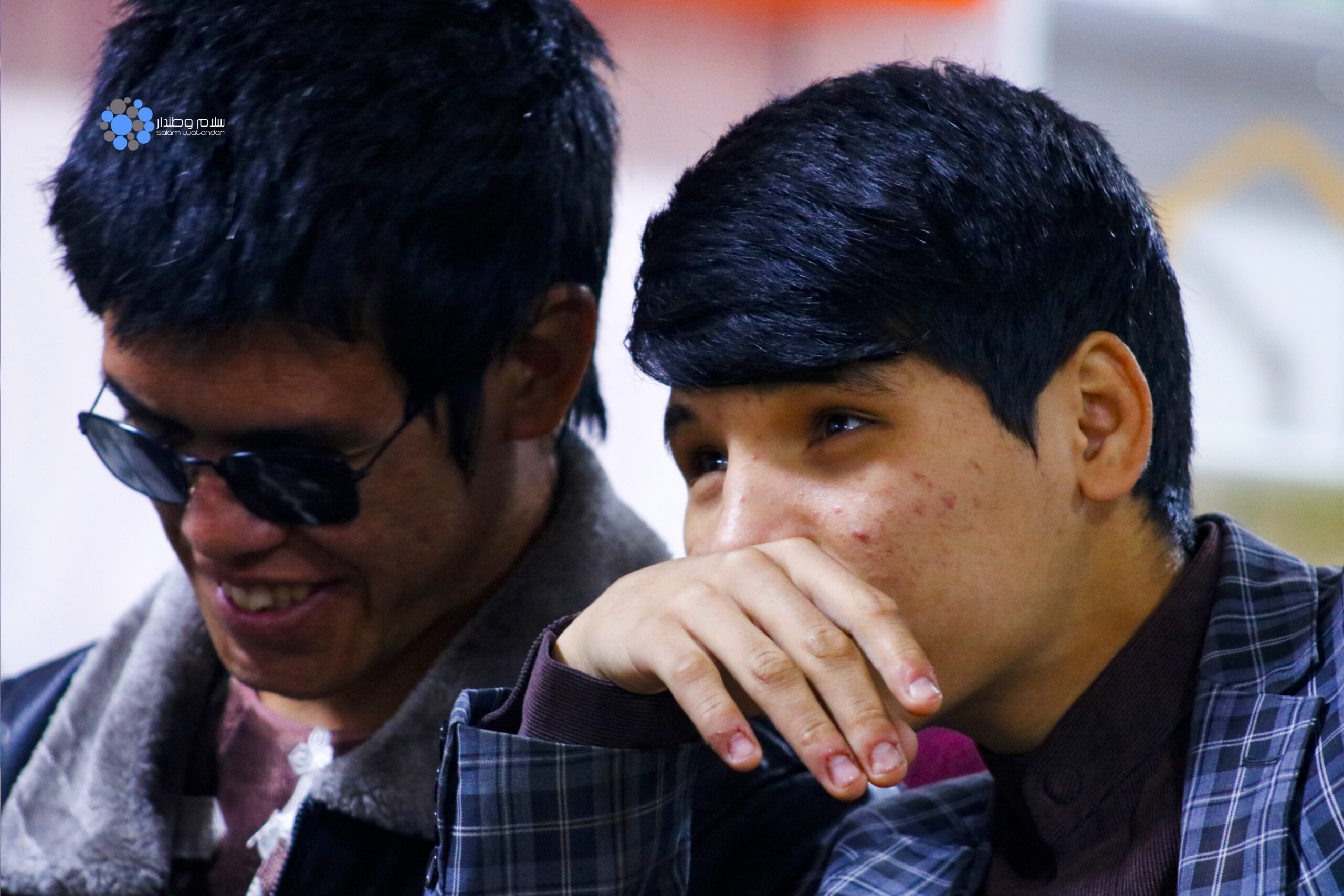BALKH (SW) – On Wednesday, the Nukhbagan Private Pniversity celebrated World Braille Day, dedicated to the special writing system for visually impaired. A number of blind and visually impaired individuals and local officials in Balkh attended the event.
Braille is a tactile representation of alphabetic and numerical symbols using six dots to represent each letter and number, and even musical, mathematical, and scientific symbols. Braille (named after its inventor on January 4, in 19th century France, Louis Braille) is used by blind and partially sighted people to read the same books and periodicals as those printed in a visual font.
On World Braille Day, which was celebrated in Balkh, blind and visually impaired individuals expressed grievances over the absence of support programs and suitable job opportunities for the blind.
The most pressing issues faced by visually impaired individuals include the shortage of books, public school teachers’ unfamiliarity with Braille, limited educational and job opportunities, and not recruiting blind individuals within educational institutions.
Abdulrahim Safa, one of the visually impaired people in Balkh, says: “People who have lost their sight are facing economic problems. To find a piece of bread, disabled children work on the streets. They are struggling with health and job problems.”

Seyed-Mohammad Yazdanparast, another visually impaired person, also says: “Students in Balkh governmental schools are facing a shortage of textbooks and professional teachers. People who graduate from grade 12 cannot get into the university because the teachers are not familiar with Braille.”
Meanwhile, the officials of the Balkh Martyrs and Disabled Affairs Department say that they are working in coordination with other governmental institutions to provide better services to visually impaired people.
Jan-Mohammad Hekmat, head of the department, says: “We assure them that if they can work, we will provide them opportunities. To address their problems and employ them, we work in coordination with the leadership of the Islamic Emirate in the education and health sector.”
Ajmal Rahmani, the director of the special school for people with disabilities in Balkh, confirming these problems, says that the officials of Balkh University have promised to provide the basis for attracting the blind to the fields of study. “They promised that they will provide access to professional services in the technical and professional education sector of work and activity in the community.”
However, based on the statistics of the Afghanistan Association of the Blind, there are currently around 18,000 visually impaired and partially sighted people in Balkh, of which at least 5,000 are completely blind.






